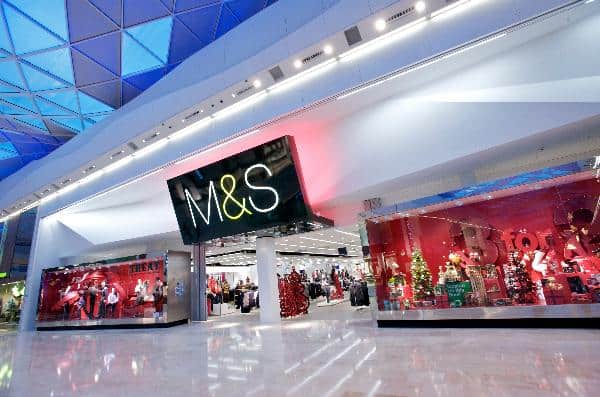Marks & Spencer today showed how lockdown affected the shape of its business in the third quarter of its financial year – and how clothing and home sales grew online as they fell in store.
The retailer also warned that while the UK’s trade deal with the EU would not add tariffs to goods sold in its UK stores, it had the effect of adding both tariffs and bureaucracy to those it exports to the EU.
In a Christmas trading statement, Marks & Spencer said its third-quarter sales would come to £2.5bn. That’s down by 8.2%, compared to the same time last year, and by 7.6% on a like-for-like basis that strips out the effect of store openings and closures.
Online clothing and home sales of £353m were 47.5% up on the same time last year across the period. Marks & Spencer now sells food online via Ocado Retail, which it now co-owns with Ocado, and says that business “further sustained its recent positive performance with the participation of M&S products remaining strong”.
The retailer, ranked Elite in RXUK Top500 research, has brought digital technology into store, both to support shipping online orders from store, through the BOSS system, and to make it easier to pay in-store. It has also introduced a new Vangarde supply chain programme. The new systems, it says, have helped to improve service and reduce waste.
Marks & Spencer chief executive Steve Rowe says: “Given the on-off restrictions and distortions in demand patterns our trading was robust over the Christmas period. More importantly beneath the Covid clouds we saw a very strong performance from the Food business including Ocado Retail and a further acceleration of clothing and home online. I want to thank all my colleagues for a first-class execution of Christmas for our customers in near impossible conditions.
“Near-term trading remains very challenging but we are continuing to accelerate change under our Never the Same Again programme to ensure the business emerges from the pandemic in very different shape.”
How sales channels were affected by lockdown
M&S’ figures today show how store closures affected its business both across the group’s different sales channels and online. Before the November lockdown, when shops were open across the UK, sales across all channels were down by 3.6% on last year, but its clothing and home ecommerce sales were 35.6% ahead.
During the November lockdown, when all non-essential shops closed in England and were also closed for part of that time in Wales, Northern Ireland and in parts of Scotland, sales across the business were down by 19.5% (the retailer was able to open as an essential retailer selling food and acting as a click and collect point for online retail). M&S’ online sales grew by 62.2% ahead of last year.
Following the lockdown, when shops in Tier 4-equivalent parts of the UK were closed, sales across the business were down by 3.6% – but online sales were 47% ahead of last time.
Food sales fare better than clothing and home
When sales are broken down by category, food sales of £1.7bn were 2.2% ahead of last year in total (2.6% LFL). Before lockdown they were 5% ahead, fell by 4.5% during lockdown, and grew by 4.4% after that. Simply Food stores, said the retailer, had outperformed, while its online food sales grew via the Ocado Retail business.
Clothing and home sales of £787m fell by 25.1% (24.1% LFL) across the quarter, compared to the same time last year; in-store sales fell by 46.5% as online sales in the category grew by 47.5%. Sales in the category were already well down (-16.8%) before lockdown and fell further (-40.5%) during lockdown, before recovering to an extent afterwards (-19.4%). The retailer is moving away from discounting towards a promise of ‘trusted value’ and says that full-price sales fell by just 4.8%, while full-price online orders more than doubled.
Brexit and international
Third-quarter international sales fell by 10.4% to £239m, although the retailer says online sales have doubled and trading trends have improved in the markets where it owns its own stores. But the pandemic has had a knock-on effect on the way it supplies franchise partners.
Marks & Spencer says that although its core UK business will not incur tariffs as a result of the UK’s free trade agreement with the EU, there are potential tariffs and complex administration affecting the part of its range that is exported to the EU. This, it says, “will significantly impact our businesses in Ireland, the Czech Republic and our franchise business in France which we are actively working to mitigate”.









